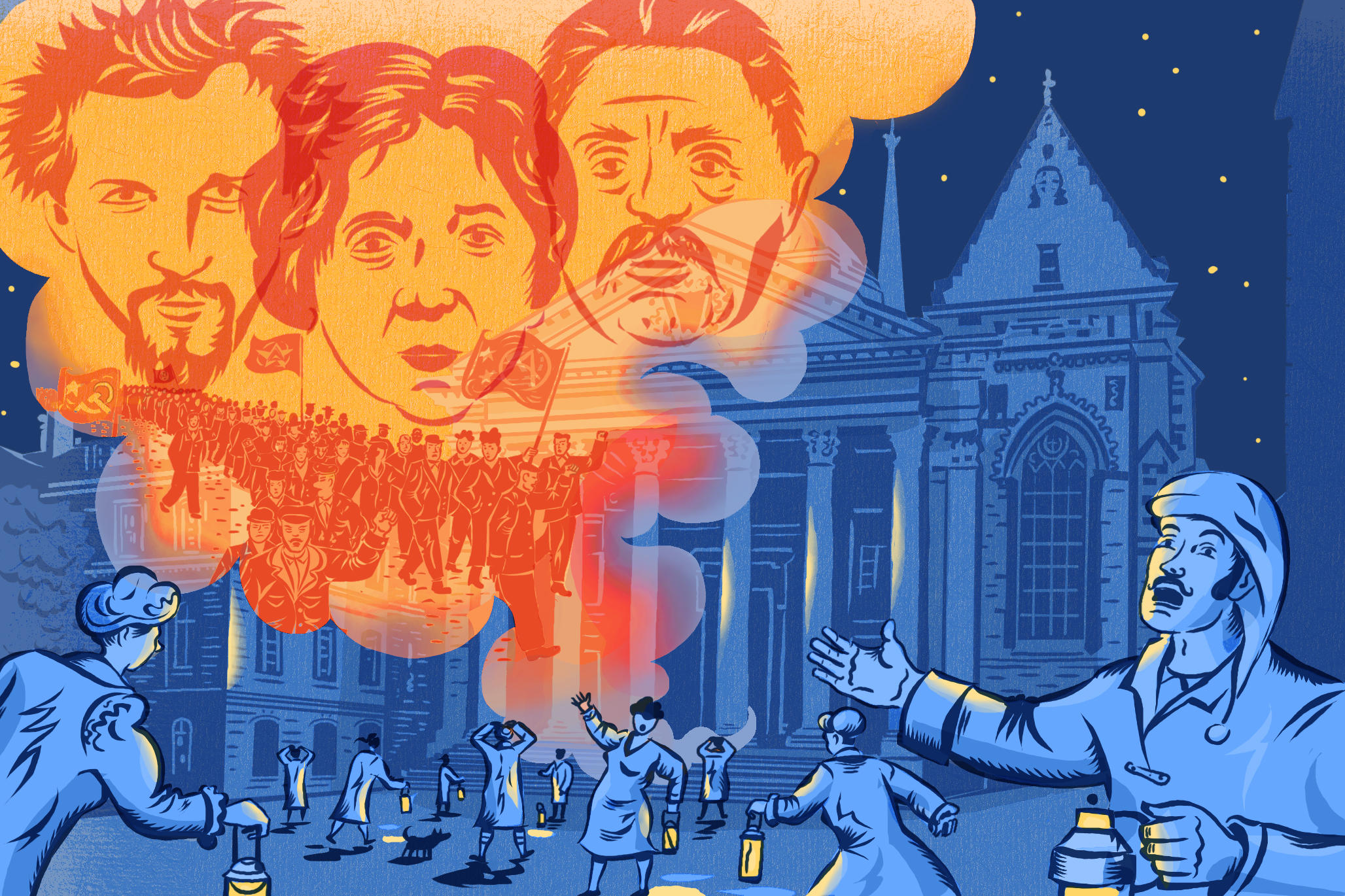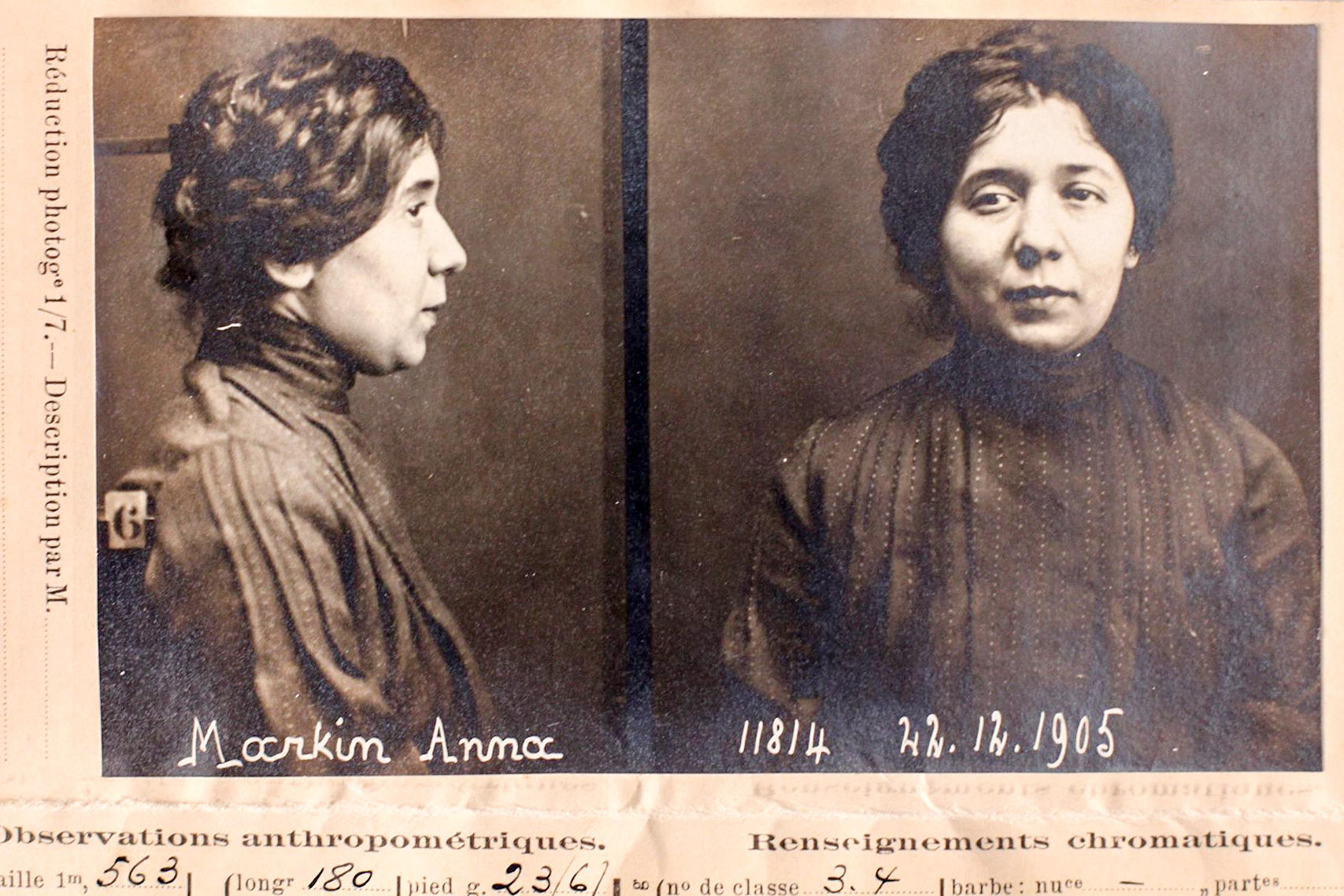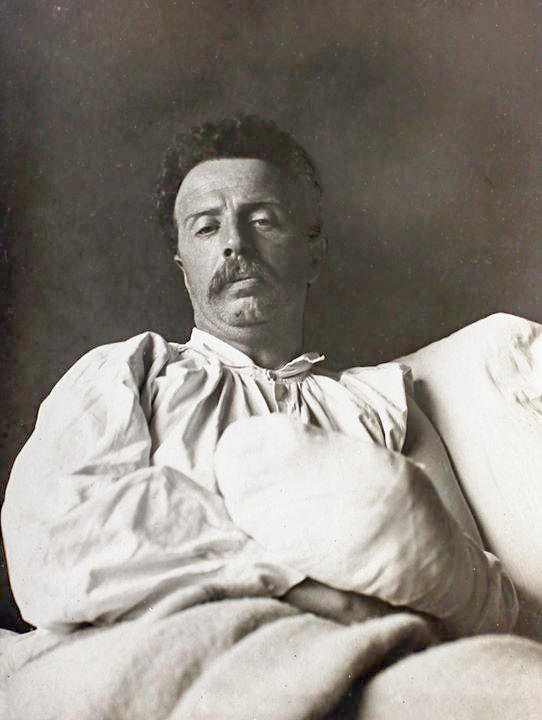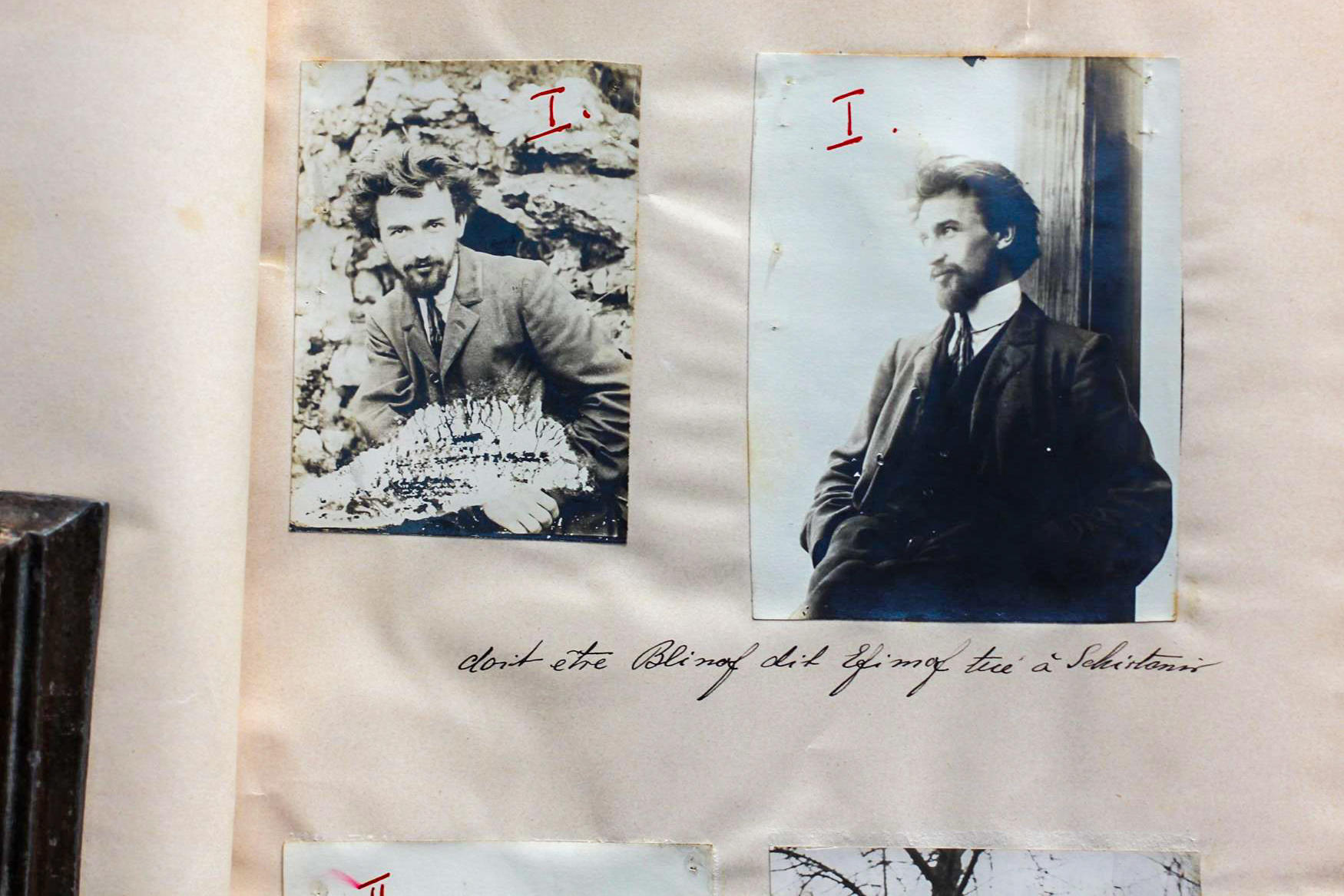
When bombs shook Geneva

In the early 1900s, Geneva was the site of two explosions. Both of them were the work of anarchists from Italy and Russia amid turbulent times for Switzerland.
A huge explosion shattered the quiet of night-time Geneva on December 23, 1902. The noise brought sleepy citizens on to the streets of the downtown area in their nightshirts, and the blast could be heard even in outlying suburbs.
White smoke billowed out of St Peter’s cathedral. It soon became apparent that this was a bomb attack.
A charge of dynamite had been detonated beside the cathedral by a person or persons unknown. The explosion blew a hole in the main entrance door of the church; it also shattered 319 window panes. Pieces of a Milan newspaper called “Secolo” were found at the scene of the crime, so suspicion fell on Italian anarchists.
But subsequent arrests, questioning of suspects and search warrants brought the police nowhere in their investigation. Only one thing was clear: the attack was linked to the general strike that had affected Geneva three months before.
Escalating class war
That October, the owner of the privately-run streetcar service had let go all his older employees, intending to replace them with younger, lower-paid workers.
The streetcar operators went on strike, the employer would not back down, and the conflict grew into a general strike across Switzerland, the first of its kind. Some 15,000 workers, a majority of the employees in Geneva, joined the strike to demand the reinstatement of the men who had lost their jobs.
The situation quickly escalated. Strike leaders were arrested, there were skirmishes with the police, and the government called out 2,500 soldiers to keep order. A quarter of the soldiers refused to proceed against the strikers, but there were still numerous casualties.
Tough measures against soldiers
After three days, the unions halted the strike. A court decision then angered the workers further: strikers without Swiss citizenship were expelled from the country, 108 soldiers were jailed, and 17 soldiers were court-martialled for mutiny. The federal government turned down their later request for a free pardon.
“God and the social struggle want it to be so.” – Confession of “Dermann”
Five days after the Geneva explosion, the Ministry of Justice received a statement claiming responsibility. “God and the social struggle want it to be so” was written on a postcard signed “Dermann”. This pseudonym was already known to police. It had been used by a man named Carlo Marchetto, who had recently been expelled from Switzerland for vagrancy. There was a manhunt, and the suspect’s photograph was sent to police stations at home and abroad.
Damage, no casualties
On December 29, the wanted man was arrested near the western Swiss city of Neuchâtel. Newspapers as far away as Australia reported the arrest. He immediately confessed not only to the bomb attack, but also to break-ins in ammunition depots and thefts. He had told people he knew that the bomb attack was his response to the condemnation of soldiers for mutiny.
On the other hand, Marchetto did not really fit the picture of the militant anarchist worker. He was the son of an engineer, well educated, and spoke several languages. He worked as a technician in railway and tunnel construction, where, incidentally, he had learned about explosives.
‘Hallucinations and obsessions’
Experts found that Marchetto had planned the explosion at the cathedral in such a way that it would cause the greatest alarm while not endangering human lives.
On the other hand, the public prosecutor was doubtful about Marchetto’s sanity and ordered an evaluation. This psychiatric exam declared him to be unfit to plead due to “hallucinations and obsessions”. So the trial was called off. Marchetto was confined as a lunatic, and was later sent back to Italy.
Second attack
Before three more years had passed, Geneva was the scene of another bomb attack. It was not really comparable to the explosion at the cathedral, but it did create quite a stir. This bomb went off on Rue Blanche in Plainpalais, an area known at the time as “Little Russia” because of its large immigrant population.
Following a deafening explosion on the fourth floor of an apartment building, worried neighbours called the police. On arrival at the scene, they encountered a young woman bleeding from a head wound who would not let them into the apartment.
When they finally broke down the door, they were met by a terrible sight: “bloodstains and traces of flesh and bones spattered on the walls and ceiling” indicated that there had been human casualties. They found readymade bombs, detonators and other materials for causing explosions.
“A large quantity of chemicals which might have exploded and were piled in these small rooms had thankfully not blown up – if they had, they would have caused enormous destruction and loss of life”, reported the Swiss criminological journal Zeitschrift für Strafrecht.
Bombers’ HQ
The apartment of the conspirators was “chemical laboratory, revolutionary cell, passport studio and printing-works all in one”. – Neue Zürcher Zeitung
The apartment, as the Neue Zürcher Zeitung newspaper reported the next day, was used as a “chemical laboratory, revolutionary cell, passport studio and printing-works all in one”. The collection of official stamps found suggested that there was a major business in falsified documents going on.
The injured woman at first refused to make any statement, but then she said that she had stepped on an explosive. She gave her name as Anna Markin and said she had arrived just hours before from Russia. When a policeman wanted to take her to hospital, she indicated she would prefer to go to jail.

The man who lost a hand
At the same time, a man presented himself at the cantonal hospital saying that a revolver had gone off and blown off several of his fingers. While doctors were engaged in amputating the hand, police found that this patient was in fact Boris Bilite, a Russian chemist. At his place of residence they found four kilos of dynamite, metres of fuse-wire, and forty detonators, not to mention books and pamphlets about making explosives.

Some other Russians seen hurriedly leaving the Rue Blanche apartment after the explosion had vanished.
In the next few days, the press began reporting about Russian refugees who “ask for asylum”, but mostly belong “to the terrorist party”, set up “printing-plants and clandestine laboratories” in their wretched accommodation and disappeared like “migratory birds” when anything went wrong.
Against Russia, not Switzerland
The newspaper reports were nonetheless fairly low-key – remarkable considering that the explosives in the conspirators’ lair would have been enough to blow up “several houses”.
“As was to be expected, the Russians involved in the bomb-making business had preferred to step across the border,” wrote the Neue Zürcher Zeitung drily.
“Despite the large find of explosives in the Rue Blanche, it is not believed that this was an actual bomb factory. Rather, it seems that Bilite was giving a course of lectures on explosives and bomb-making. The course had been well attended.”
Even if there had been a bomb factory in the apartment, it would not have bothered the Swiss all that much. The Russians took little interest in the political affairs of the countries that gave them asylum. They worked single-mindedly for the cause of revolution in their homeland.

The mysterious Russian woman
Bilite and Markin were kept apart in prison by the investigating magistrate. Both refused consistently to reveal their true identity. This mysterious Russian woman captured the journalists’ imaginations.
Anna Markin was not one of those “tempestuous beauties” of the Slavic type, but “small, gawky, with hard features, a mannish gate, mistrustful, taciturn and fanatical”. – Journal de Genève
The Journal de Genève newspaper reported that she was not one of those “tempestuous beauties” of the Slavic type, but “small, gawky, with hard features, a mannish gait, mistrustful, taciturn and fanatical”. But one might guess that she was “the strange, mysterious heroine of some tragedy in the Muscovite realms”.
The Neue Zürcher Zeitung struck the same note, calling Markin a “mysterious woman, perhaps the heroine of some dreadful tragedy”. Imprisonment seemed to get on her nerves. Media reports said she was “in a state of great irritation” and responded to people attempting to speak with her by “hurling abuse at them”.
After a month she was released without charge, something which brought “great joy” to the Russian student community in Geneva. In spite of all attempts the authorities were unable to establish her true identity.
Atypical anarchist
Boris Bilite was subjected to psychiatric evaluation and found to be sane. So he eventually stood trial in Federal Court, the place where all explosives cases were heard starting in 1894.
His defence focused on technical matters and pointed out that the explosives involved were not the usual dynamite. So he could not strictly speaking be found guilty of an explosives offence.
These tactics made an impression on the reporters covering the trial. “We found ourselves dealing not with a violent activist who was keen on enforcing his hatred and his beliefs, or an apostle converting the credible minds of exiled Russian youth, but almost a man of science”, said the Journal de Genève.
“During his long residence among us [Swiss], Bilite has adapted markedly to our culture; he dreams no mad dreams; he seems to have a sense of reality and what is possible. […] So we have not been hearing long statements of beliefs, and the ideas for which a whole freedom-loving people are struggling were scarcely mentioned.”
Lenient sentence
As Bilite also managed to transfer most of the guilt to the occupant of the apartment, who had disappeared, he got off fairly lightly. Instead of the maximum sentence of five years for crime involving explosives, he was found guilty on the lesser charge of “assistance with making explosives” and given just 18 months in jail. After serving this sentence he was also to be permanently deported from the country.
The federal prosecutor and well-known “anarchist hater” Otto Kronauer was unhappy with the verdict. He believed the court had been moved to excessive leniency because Bilite had already lost a hand as a result of the incident.
In 1907 Bilite applied for parole and also for the deportation order to be revoked. This would be “a particularly severe punishment”, as he had lived in Geneva for many years and would have to leave behind “the people he knew and all he held dear”. The government was not disposed to make any conciliatory gesture, however. As with Carlo Marchetto, all trace of Boris Bilite, the explosives expert, was lost after his deportation.
(Translated from German by Terence MacNamee)

In compliance with the JTI standards
More: SWI swissinfo.ch certified by the Journalism Trust Initiative




























You can find an overview of ongoing debates with our journalists here . Please join us!
If you want to start a conversation about a topic raised in this article or want to report factual errors, email us at english@swissinfo.ch.